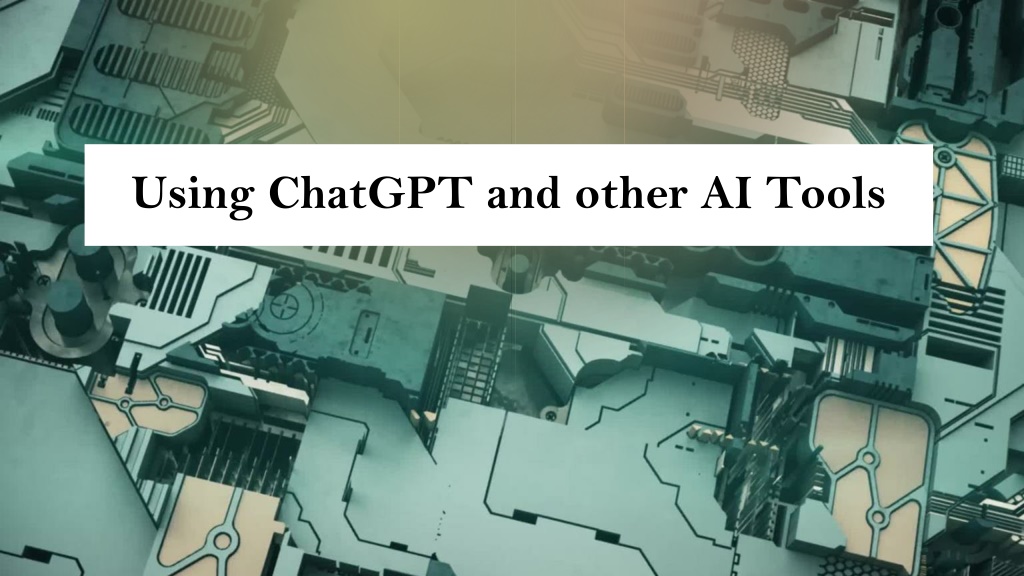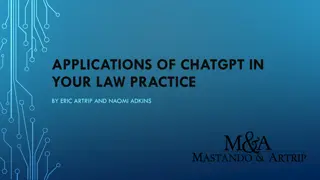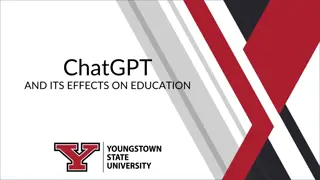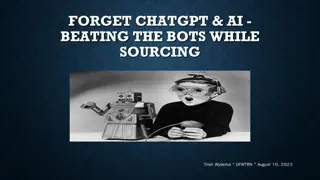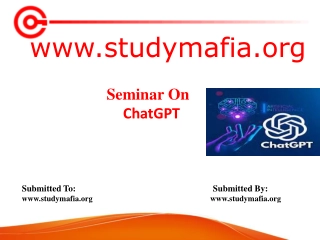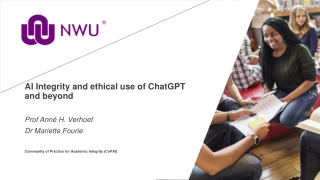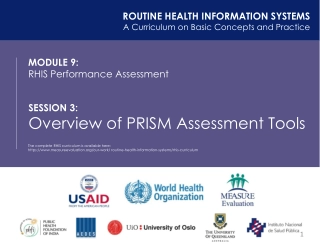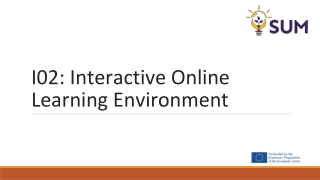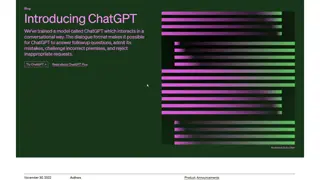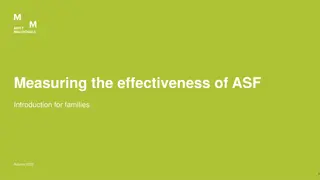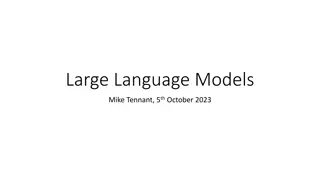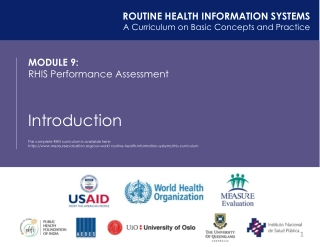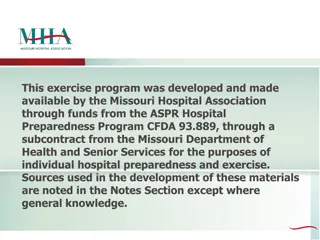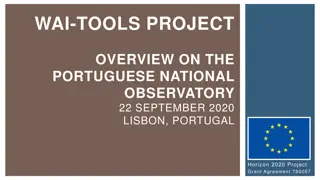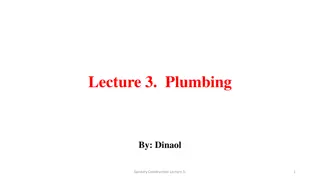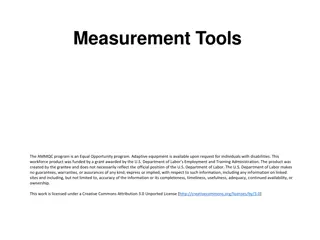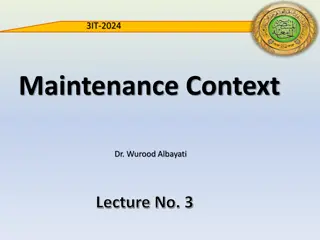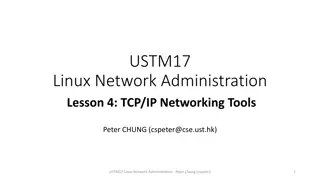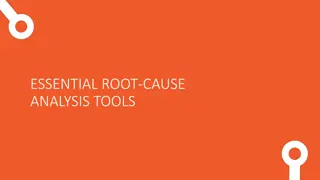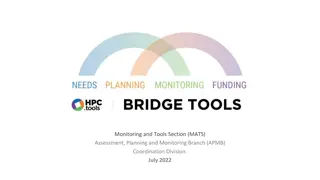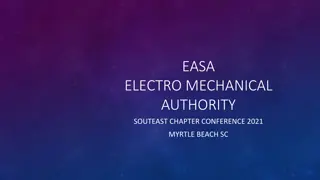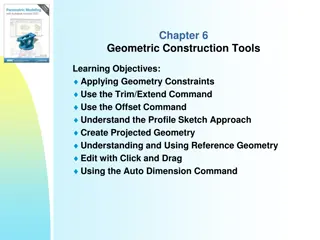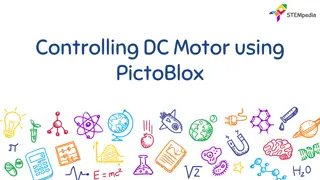Using ChatGPT and other AI Tools
The realm of AI with Large Language Models (LLMs), like ChatGPT, Bing, Bard, and others. Understand how these models learn from text and documents to predict and assist, and discover effective Prompt Engineering techniques to harness their capabilities fully. Dive into the world of LLMs to enhance your tasks with AI assistance.
Download Presentation

Please find below an Image/Link to download the presentation.
The content on the website is provided AS IS for your information and personal use only. It may not be sold, licensed, or shared on other websites without obtaining consent from the author. Download presentation by click this link. If you encounter any issues during the download, it is possible that the publisher has removed the file from their server.
E N D
Presentation Transcript
What is Artificial Intelligence? "A machine's ability to perform the cognitive functions we associate with human minds, such as perceiving, reasoning, learning, interacting with an environment, problem solving, and even exercising creativity" (McKinsey & Company, 24 April 2023)
Large language models (LLM) are a specific kind of AI Use machine learning by inputting text and documents to learn how people use language Predicts what word goes next based on the patterns it finds in the text and documents it learned from Just like your phone when you are texting! How the AI learns is a black box engineers are not completely sure what the AI is doing to learn and make predictions ChatGPT and Large Language Models
Many Large Language Models Available Text ChatGPT (https://chat.openai.com/) Microsoft Bing (https://www.bing.com/?/ai) Google Bard (https://bard.google.com/) Images Microsoft Bing (https://www.bing.com/create) Midjourney (https://www.midjourney.com/)
How to Use ChatGPT (or Bing, or Bard, or Other LLMs) Go to the website Many require an account Once you have signed up, you are ready to go!
Prompt Engineering "The art of crafting prompts that effectively instruct ChatGPT [or other AI tools] to generate the desired output" (DataCamp, May 2023) Always assume when you begin a session that ChatGPT doesn't know anything What exactly do you want ChatGPT to do? What will that output look like? Why do you need ChatGPT to do this task? What roles does ChatGPT play in doing the task? (e.g., a student, a teacher)
More Effective Prompt Engineering (DataCamp, May 2023) 1 2 3 4 Clarity: define what you want model to do and kind of output you want (e.g., a summary, an analysis) Context: provide clear context and instructions Precision: specifically ask for what you want (e.g., a list, a paragraph) Role-play: give ChatGPT a role to play
Be Careful! Never believe output from AI without verifying it! AI is known to hallucinate (i.e. make up facts and references) Verify with knowledge you already know Verify by using your textbook or other academic resources (e.g., the Library website) Google information if you are unsure
How Do You Learn to Use ChatGPT? You have to practice! Let's try out a prompt in class: We are learning about political behavior at work. You are not understanding the concept well and would like ChatGPT's help in: Defining political behavior at work Providing examples of what political behavior looks like at work The consequences of political behavior in the workplace How would you write this prompt?
Studying with ChatGPT Let's see if we can get ChatGPT to create quiz questions to test our learning: We learned about SQ3R last week. How would you write a prompt to get ChatGPT to provide quiz questions for you to test your basic knowledge of SQ3R?
Writing a Cover Letter with ChatGPT Let's pretend we are applying for an internship at Google Search for "Google internships" for more information Find an internship you might be interested in Ask ChatGPT to write a cover letter for the internship
ChatGPT and Other LLM AI Have Limitations Some, like ChatGPT, are not connected to the internet AI is not connected to Library resources such as articles and books Another that is considered proprietary (i.e. owned by a company) and behind a paywall is inaccessible to AI Always check output from AI ChatGPT's information is only current up to 2021 Use Microsoft Bing or Google Bard because they are connected to the internet and current It can output garbage (e.g., made-up information, sentences that do not make sense, a writing tone that is not appropriate for professional writing)
What Can ChatGPT and AI Do for Us? Save us time! Improve our writing Create an outline Generating initial text Correcting text we have already written Learn difficult concepts Study for quizzes and exams Create flashcards or quizzes Summarize a new topic Create study plans and schedules
Cite Your Use of AI When you use AI, you need to cite your use of AI in your paper or project. Suggestions for citing AI: https://libguides.slcc.edu/ChatGPT/Citati ons For your classes, be sure to look at the syllabus Does your professor have an AI policy? Does your professor want you to describe how you used AI in your paper or project? Does the professor want details like specific prompts you used? Do you need to describe how you checked and changed the AI output?
Other AI Resources "One Useful Thing" blog by Ethan Mollick: https://www.oneusefulthing.org/ "What Is AI?" by McKinsey & Company: https://www.mckinsey.com/featured-insights/mckinsey- explainers/what-is-ai "A Beginner's Guide to ChatGPT Prompt Engineering" by DataCamp: https://www.datacamp.com/tutorial/a-beginners-guide-to- chatgpt-prompt-engineering "What Is Prompt Engineering?" by Educative: https://www.educative.io/blog/what-is-prompt-engineering
